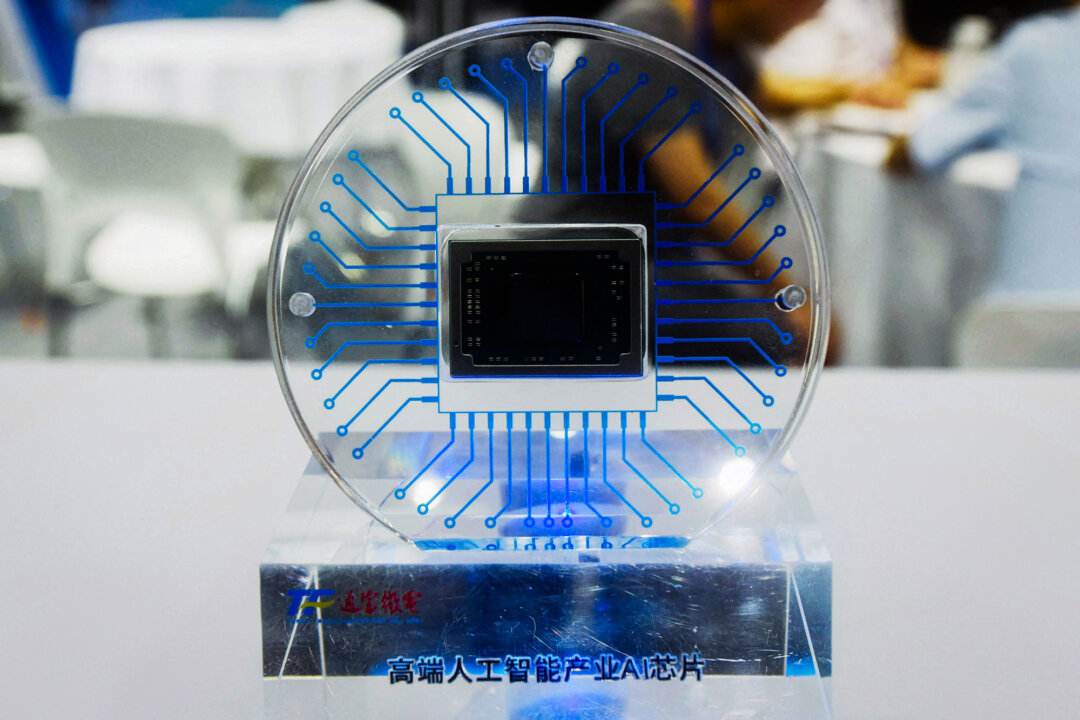The lawmakers’ concerns echo recent fears voiced by colleagues on both sides of the political aisle.
The House Select Committee on the Chinese Communist Party (CCP) on Nov. 7 sent inquiries to several semiconductor technology companies to assess the extent to which the industry relies on China, shortly after third-quarter earnings were posted and some of the companies projected a continued U.S.–China tech feud.
In letters to ASML, Applied Materials, Tokyo Electron, KLA, and Lam Research, committee chair Rep. John Moolenaar (R-Mich) and ranking member Raja Krishnamoothri (D-Ill.) noted that industry stakeholders have voiced concerns over increased export controls to China. For example, news that the Biden administration was considering new export controls on artificial intelligence (AI) chips led to shares falling for companies like ASML and Nvidia last month.
But lawmakers say they believe that partnerships between the United States and its allies, as well as policies like the CHIPS and Science Act, can provide opportunities that offset export controls. Indeed, the companies predicted growth in recent earnings reports despite geopolitical tensions and stock market dips accompanying news of potential trade restrictions.
These are all companies that produce specialized equipment needed to manufacture advanced chips.
The lawmakers expressed concern that, despite currently existing export controls, which have been in place for years, the Chinese communist regime has been able to “stockpile” semiconductor manufacturing equipment and make advances in military-use technology.
“As one of the world’s leading semiconductor manufacturing equipment (SME) firms, your company has information that will help us better understand the flow of SME to the PRC [People’s Republic of China] and its contributions to the PRC’s rapid buildout of its semiconductor manufacturing industrial base,” the lawmakers wrote.
“Alarming reports show the PRC now purchases more semiconductor manufacturing equipment than the United States, South Korea, and Taiwan combined,” they added, citing a report by the international chips association SEMI.
The lawmakers’ concerns echo recent fears voiced by colleagues on both sides of the political aisle. Evidence that CCP-backed companies Huawei and SMIC have obtained advanced semiconductor technology that should have been blocked to them by current U.S. export control laws has raised questions about the enforcement of those laws and whether more are needed.
In the Nov. 7 letter, the congressmen asked the companies to provide information spanning fiscal years 2022 to 2024 on sales to China and associated revenue, including the export licenses obtained for these transactions and whether any companies the five sold to are tied to the Chinese communist regime or are affiliated with blacklisted Chinese companies.
The lawmakers also requested information regarding the volume of equipment that has been sent to China—directly or indirectly—and what the most advanced technologies were.
Although the United States has for years taken steps to prevent the CCP from obtaining the most advanced semiconductor technologies, China is a major player in the global chips industry as both a buyer and seller, particularly when it comes to larger, less advanced chips, and is thus deeply integrated into the world supply chain.
In a recent earnings call, ASML CFO Roger Dassen alluded to possible upcoming export controls. He told investors it expected sales to decrease in China, predicting a drop from 29 percent of sales in 2023 to 20 percent in 2025. Despite that, the company predicted overall growth.
ASML, a Dutch company, produces the extreme ultraviolet lithography systems required to manufacture the smallest, most advanced chips. The Dutch government has issued its own export restrictions, preventing ASML from shipping its most advanced systems to China last year and enhancing the controls this year.
Applied Materials likewise reported lower China sales this year, something the company had anticipated. The company is a leading producer of DRAM (dynamic random access memory) chips, and it has noted that though DRAM sales were down 11 percent in China, overall, DRAM sales grew nearly 50 percent year over year. It’s one of the SME companies the government has investigated over suspected shipments of sensitive technologies to China.
Lam Research, whose customers include TSMC, Intel, and Samsung, recently reported that 37 percent of its sales came from China in the third quarter. Lam Research CFO Doug Bettinger said at the Goldman Sachs Communacopia and Technology in September that Chinese customers were purchasing larger 28-nanometer chips, older technology not targeted by export control rules.
“It’s not the most advanced, but it’s not easy to do if you’re new to this, and they need help,” he said. “This spending is not going to go away.”
KLA noted in its recent earnings report the possibility of new export control rules. China currently makes up 42 percent of its revenue, with North America coming in next at 18 percent. Demand in China has lowered, KLA reported, but the company experienced overall growth.
China is also Tokyo Electron’s biggest customer, and the company saw growth in sales there over the past year, according to a recent earnings report.
ASML declined to comment. Applied Materials, Tokyo Electron, KLA, and Lam Research did not return The Epoch Times’ request for comment.

